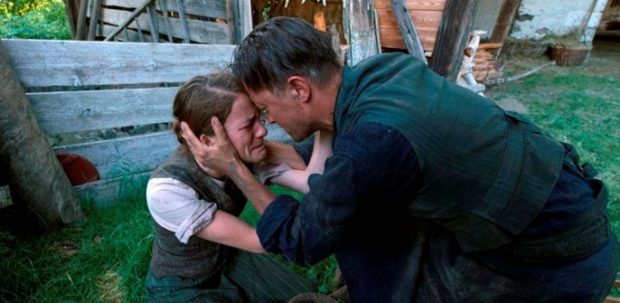 A Hidden Life (Terrence Malick).
Malick is a filmmaker with a unique style that combines subjective voice-over with lyrical visual editing. In recent years he has seemed stuck within this style, without a compelling theme or story grounding it. But in his latest film he has found an important story, that of an Austrian farmer in the 1930s and 40s who refused to say the loyalty oath to Hitler, or to fight in Hitler’s war. Perhaps what moved me most was the idea of a single individual saying “No” to evil despite the opposition of society and government against him, and especially saying “No” even though, as people in the film point out to him, his action will have no effect on the war, which will go on anyway, and whatever punishment he suffers for it will go largely unnoticed. Malick puts a laser focus on the loneliness of conscience and affliction, and his gorgeous shots of the natural world create a tremendous contrast between the spirituality he identifies with nature and the horrors being perpetrated by human beings on one another. August Diehl is riveting as the main character, and Valerie Pachner is unforgettable as his wife, who struggles to understand what her husband is doing, yet doesn’t waver in her love. This is a shattering film, and one that I think is particularly relevant for today.
Parasite (Bong Joon-ho).
A Hidden Life (Terrence Malick).
Malick is a filmmaker with a unique style that combines subjective voice-over with lyrical visual editing. In recent years he has seemed stuck within this style, without a compelling theme or story grounding it. But in his latest film he has found an important story, that of an Austrian farmer in the 1930s and 40s who refused to say the loyalty oath to Hitler, or to fight in Hitler’s war. Perhaps what moved me most was the idea of a single individual saying “No” to evil despite the opposition of society and government against him, and especially saying “No” even though, as people in the film point out to him, his action will have no effect on the war, which will go on anyway, and whatever punishment he suffers for it will go largely unnoticed. Malick puts a laser focus on the loneliness of conscience and affliction, and his gorgeous shots of the natural world create a tremendous contrast between the spirituality he identifies with nature and the horrors being perpetrated by human beings on one another. August Diehl is riveting as the main character, and Valerie Pachner is unforgettable as his wife, who struggles to understand what her husband is doing, yet doesn’t waver in her love. This is a shattering film, and one that I think is particularly relevant for today.
Parasite (Bong Joon-ho).
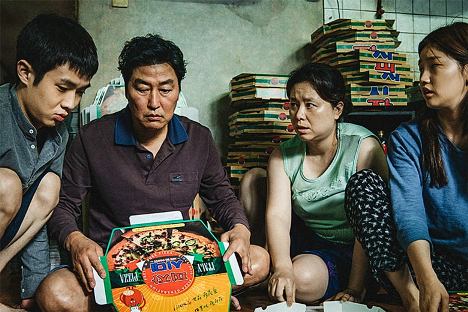 This is one of the most cleverly constructed film narratives in recent years, and one of the funniest and most exciting as well. The story concerns a family—father, mother, daughter and son—that live on the bottom rung of society, but seek to escape poverty by scamming a wealthy family that the son happens to meet. Bong takes us on a roller coaster ride from edgy comedy to horror to satire, each step of the way dramatizing how class, the wide gap between rich and poor, is a social condition that invites chaos and insanity. Even though they’re grifters, the poor family is not evil, and even though the rich family is privileged and clueless, they’re not evil either. It’s the social order itself that is the problem, the parasite, and every detail of the film has a double or triple meaning in this respect. Even a brilliant sequence in which the poor family has their basement slum apartment ruined by a flash flood can’t help but bring climate change to mind. But Parasiteis much more than a political allegory. What’s left when the dust settles are broken dreams and relationships, as beautifully presented in the film’s understated ending.
This is one of the most cleverly constructed film narratives in recent years, and one of the funniest and most exciting as well. The story concerns a family—father, mother, daughter and son—that live on the bottom rung of society, but seek to escape poverty by scamming a wealthy family that the son happens to meet. Bong takes us on a roller coaster ride from edgy comedy to horror to satire, each step of the way dramatizing how class, the wide gap between rich and poor, is a social condition that invites chaos and insanity. Even though they’re grifters, the poor family is not evil, and even though the rich family is privileged and clueless, they’re not evil either. It’s the social order itself that is the problem, the parasite, and every detail of the film has a double or triple meaning in this respect. Even a brilliant sequence in which the poor family has their basement slum apartment ruined by a flash flood can’t help but bring climate change to mind. But Parasiteis much more than a political allegory. What’s left when the dust settles are broken dreams and relationships, as beautifully presented in the film’s understated ending.
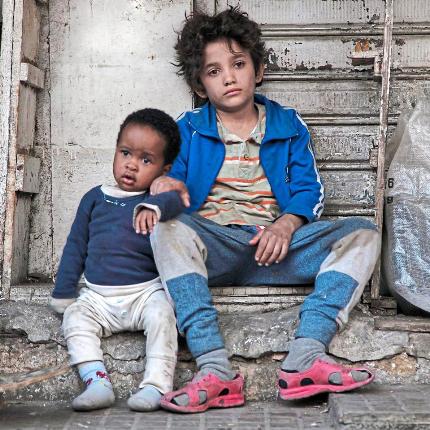 Capernaum (Nadine Labaki).
Capernaum (Nadine Labaki).
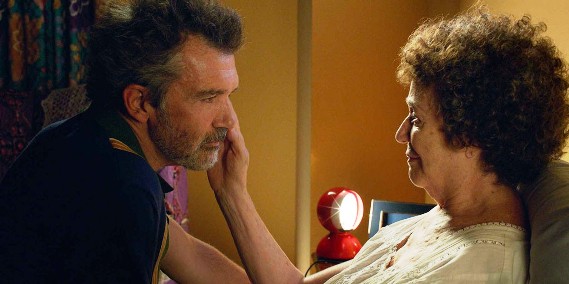 Almodóvar’s uncharacteristically mellow yet incisive new picture has stayed with me as a fine example of a filmmaker looking back on the important things in life and art with passion, reverie, and ultimately acceptance. Antonio Banderas shines as a film director who is confronted with the pain of aging and the memory of love affairs from the past, in a story that deals with addiction, life and loss as a gay man, and humorous insights into the art of film itself.
Almodóvar’s uncharacteristically mellow yet incisive new picture has stayed with me as a fine example of a filmmaker looking back on the important things in life and art with passion, reverie, and ultimately acceptance. Antonio Banderas shines as a film director who is confronted with the pain of aging and the memory of love affairs from the past, in a story that deals with addiction, life and loss as a gay man, and humorous insights into the art of film itself.
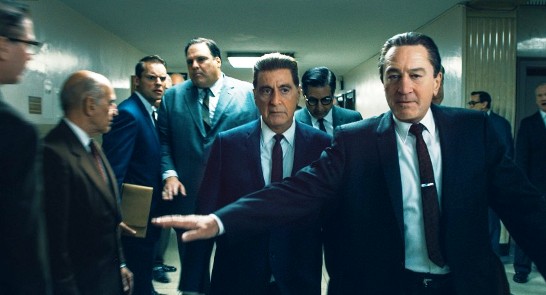 The Irishman (Martin Scorsese).
The Irishman (Martin Scorsese).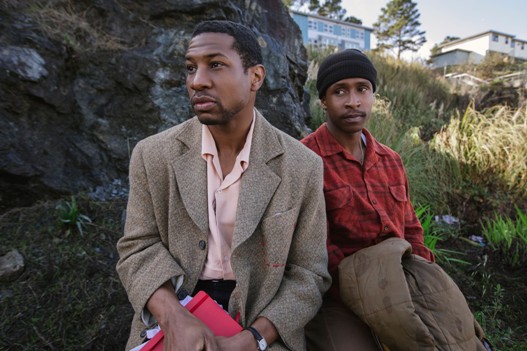 For a young man named Jimmie (Jimmie Fails) trying to reclaim his family’s old house in San Francisco, home symbolizes a time when African Americans had a solid presence in the life of the city. His best friend, the aspiring playwright Mont (Jonathan Majors) balances Jimmie’s dreams with a commitment to telling the truth. Vividly evoking a sense of place, this is a film of great beauty and tenderness.
For a young man named Jimmie (Jimmie Fails) trying to reclaim his family’s old house in San Francisco, home symbolizes a time when African Americans had a solid presence in the life of the city. His best friend, the aspiring playwright Mont (Jonathan Majors) balances Jimmie’s dreams with a commitment to telling the truth. Vividly evoking a sense of place, this is a film of great beauty and tenderness.
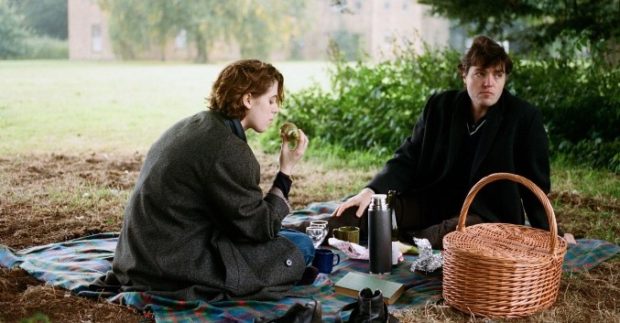 The Souvenir (Joanna Hogg).
The Souvenir (Joanna Hogg).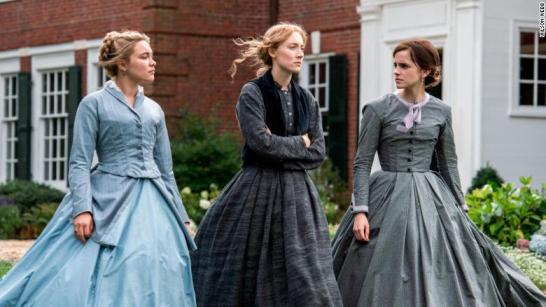 By shifting back and forth within the time sequence of Louisa May Alcott’s classic novel, Gerwig skillfully displays the contrast between an imperfect yet blissful young environment of loving sisterhood and the frustrating demands of an adult world that wants women to serve as adjuncts to men. The film’s conflation of Jo March the character with Alcott the real-life author is delightful and clever. And Saoirse Ronan, as Jo, confirms her place as one of our best actresses.
By shifting back and forth within the time sequence of Louisa May Alcott’s classic novel, Gerwig skillfully displays the contrast between an imperfect yet blissful young environment of loving sisterhood and the frustrating demands of an adult world that wants women to serve as adjuncts to men. The film’s conflation of Jo March the character with Alcott the real-life author is delightful and clever. And Saoirse Ronan, as Jo, confirms her place as one of our best actresses.
 Non-Fiction (Olivier Assayas).
Assayas is one of the few directors devoted to making films about ideas. Here, the theme is traditional culture versus the new digital culture that is threatening to supplant it. The pleasure of discussing and arguing about such matters is conveyed through a group of Parisian literary types (portrayed by Juliette Binoche and Guillaume Canet, among others) that is sexually as well as intellectually entangled. The film is so charming and funny in its low-key way, that you may not notice at first how poorly these people match their behavior with their ideals.
Non-Fiction (Olivier Assayas).
Assayas is one of the few directors devoted to making films about ideas. Here, the theme is traditional culture versus the new digital culture that is threatening to supplant it. The pleasure of discussing and arguing about such matters is conveyed through a group of Parisian literary types (portrayed by Juliette Binoche and Guillaume Canet, among others) that is sexually as well as intellectually entangled. The film is so charming and funny in its low-key way, that you may not notice at first how poorly these people match their behavior with their ideals.
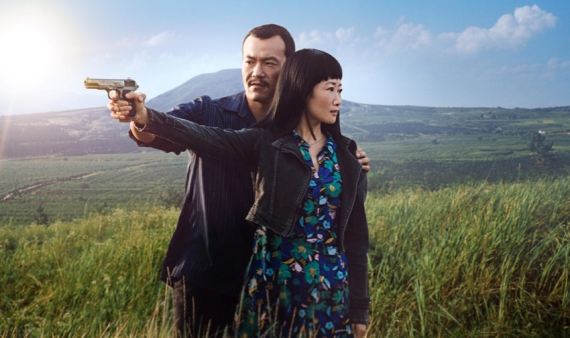 Jia’s career film project, it would seem, is to show the dismaying truth behind the illusion of the new, modern China. Here, a woman (Tao Zhao) who has prospered as the partner of a small-time gangster in a small, economically depressed city, must struggle to find a new footing after he abandons her. The sophisticated style captures the passage of long periods of time in its emotional effects, and Jia’s remarkable central idea is that deception, cunning and petty theft are the natural virtues of Chinese society. Miraculously, his movies continue to evade government censorship.
Jia’s career film project, it would seem, is to show the dismaying truth behind the illusion of the new, modern China. Here, a woman (Tao Zhao) who has prospered as the partner of a small-time gangster in a small, economically depressed city, must struggle to find a new footing after he abandons her. The sophisticated style captures the passage of long periods of time in its emotional effects, and Jia’s remarkable central idea is that deception, cunning and petty theft are the natural virtues of Chinese society. Miraculously, his movies continue to evade government censorship.

Hello! My name is Adithi, I am an international student from Mauritius, which is in the Indian Ocean. I am currently a junior majoring...

The Classic Pick for the week of December 9, 2019 - the 1979 double album from The Clash, London Calling.